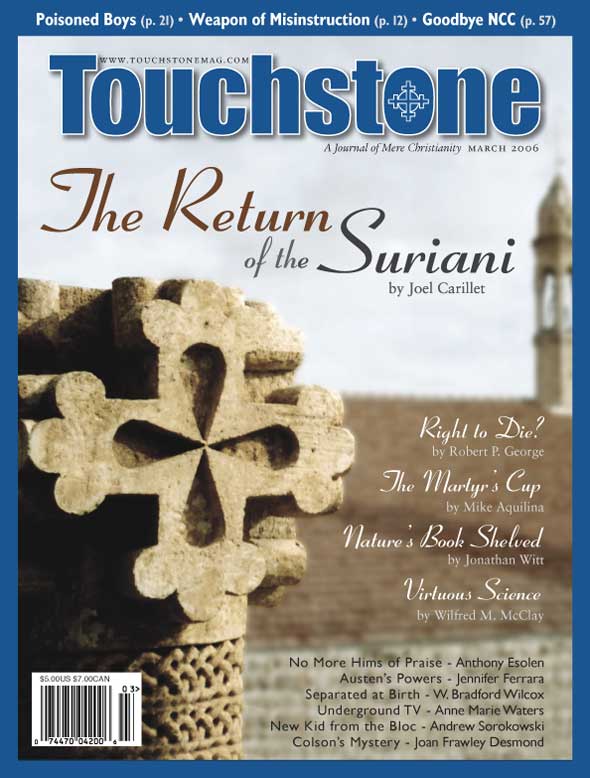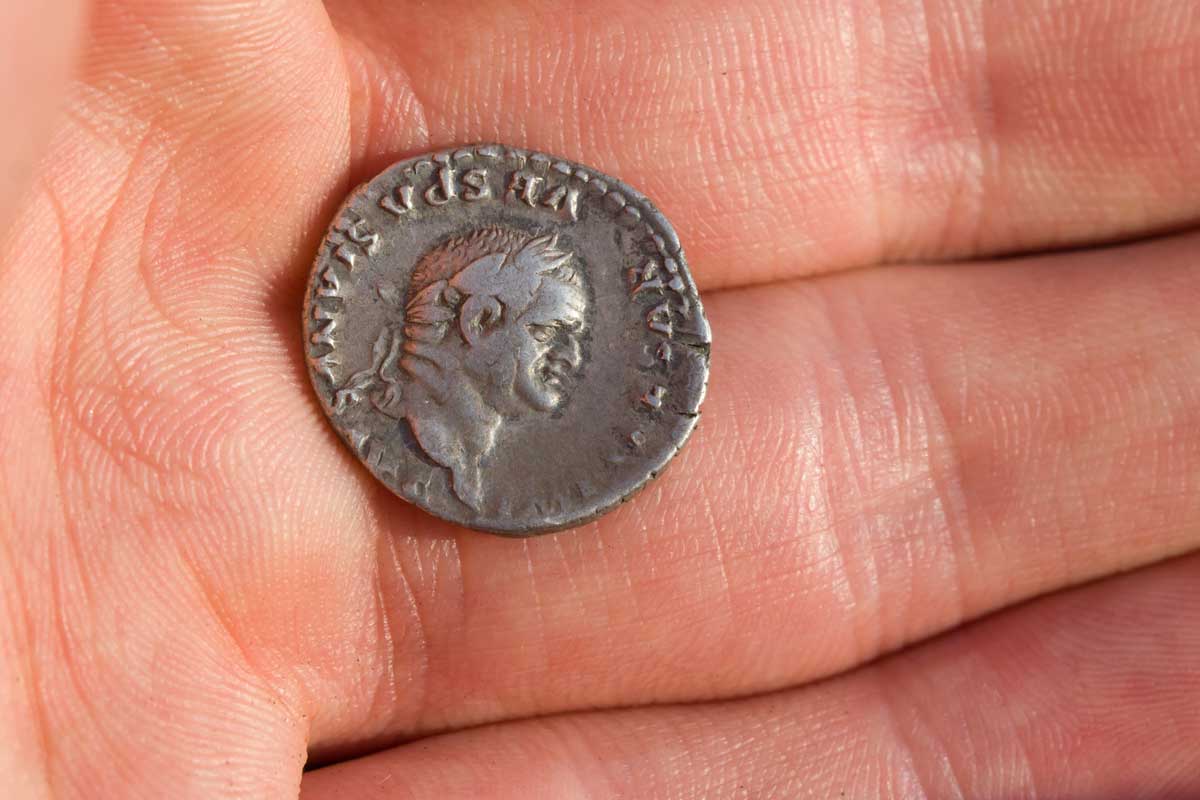Lost Shepherd
A Passionate Pilgrim:
A Biography Of Bishop James A. Pike
by David M. Robertson
Knopf, 2004
(304 pages, $24.95, hardcover)
reviewed by Ian Hunter
Episcopal Bishop James Pike may be a forgotten man today, but four decades ago he made a big splash in the ecclesiastical pond, albeit usually because of self-aggrandizing, sometimes heretical, remarks. David Robertson, the author of previous biographies of the slave rebel Denmark Vesey and of American Secretary of State James Byrnes, demonstrates in this carefully researched and lively biography that there was ever less to Bishop Pike than met the eye. More important, he traces, through one bishop’s career, the sad decline of the Episcopal Church to its present ribald state.
Pike Enlarged
James Albert Pike was born on St. Valentine’s Day 1913, in Oklahoma. His father died when he was two, and thenceforth he was raised by a hard-working, indomitable, but sometimes smothering mother, Pearl, perhaps the only love that Pike never betrayed. Pearl was a Roman Catholic, and her son an altar boy before, quite suddenly at the age of 19, announcing that he had become an Episcopalian and she should too. She did.
Pike studied, and briefly practiced, law before deciding that he had a vocation. Since he was already twice married, his first brief (one-year) marriage had to be annulled, and Robertson suggests this was accomplished by subterfuge and incomplete disclosure.
Pike served as curate at a church in Washington, D.C., commuting regularly to New York to take classes at Union Theological Seminary, presided over then by Reinhold Niebuhr and Paul Tillich. Robertson points out that it is bootless to ask what influence such intellectual giants had on young Pike: “Other men’s ideas and beliefs were like a concave, silvered vessel that Pike occasionally held up to his eyes; all he usually saw were his own features, reflected and enlarged.”
Pike first came to public attention for belligerent rhetoric—from the pulpit and outside it— on the right. In 1947, just as the House Committee on Un-American Activities was getting underway, Pike captured headlines by denouncing the faculty of Vassar College as “Unitarian, humanist, materialist, and Marxist”; his evidence was little more than one Vassar girl’s essay questioning the Virgin Birth (a doctrine the radicalized Pike of the 1960s would repudiate with great fanfare). Then he called on Christian churches to purge Communists in their midst and do battle against “secular humanists.”
Pike’s notoriety increased following his appointment in 1952 as Dean of the Cathedral of St. John the Divine in New York. He got the highly sought-after position thanks to influential friends in high Episcopal circles, particularly two bishops, Charles Gilbert and Horace Donegan.
Among other initiatives, Pike launched a weekly television show on ABC called Dean Pike, which soon eclipsed Bishop Fulton J. Sheen’s long-running Life Is Worth Living. The program made celebrities of Pike and his wife, Esther. They offered harmless chitchat about a topic, with Pike weighing in at the end to give what he called “a five-minute commercial for God.” Between 1952 and 1958 he also wrote seven books, including quite orthodox and widely read titles like Doing the Truth and Beyond Anxiety.
Never Behind
Ian Hunter is Professor Emeritus in the Faculty of Law at the University of Western Ontario. He is the author of biographies of Robert Burns, Hesketh Pearson, and Malcolm Muggeridge.
subscription options
Order
Print/Online Subscription

Get six issues (one year) of Touchstone PLUS full online access including pdf downloads for only $39.95. That's only $3.34 per month!
Order
Online Only
Subscription

Get a one-year full-access subscription to the Touchstone online archives for only $19.95. That's only $1.66 per month!
bulk subscriptions
Order Touchstone subscriptions in bulk and save $10 per sub! Each subscription includes 6 issues of Touchstone plus full online access to touchstonemag.com—including archives, videos, and pdf downloads of recent issues for only $29.95 each! Great for churches or study groups.
Transactions will be processed on a secure server.
more from the online archives
calling all readers
Please Donate
"There are magazines worth reading but few worth saving . . . Touchstone is just such a magazine."
—Alice von Hildebrand
"Here we do not concede one square millimeter of territory to falsehood, folly, contemporary sentimentality, or fashion. We speak the truth, and let God be our judge. . . . Touchstone is the one committedly Christian conservative journal."
—Anthony Esolen, Touchstone senior editor










